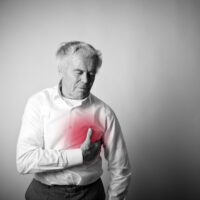Physician Assistant Degrees in France: A Comprehensive Guide
France has long been a leader in healthcare innovation, boasting one of the best medical systems in the world. As the demand for healthcare services continues to grow, so does the need for skilled medical professionals. One such emerging role is that of the Physician Assistant (PA) , a position that is becoming increasingly recognized globally for its ability to enhance the healthcare system’s efficiency and accessibility.

In this article, we will explore what it means to pursue a Physician Assistant degree in France , the education and training involved, the professional landscape, and what aspiring PAs can expect as they enter this rewarding field.
What is a Physician Assistant (PA)?
A Physician Assistant is a licensed healthcare professional who practices medicine under the supervision of a physician. PAs are trained to diagnose and treat medical conditions, prescribe medications, assist in surgeries, and provide patient education. They are a vital part of the healthcare team, allowing doctors to delegate routine and specialized tasks, thus improving patient care efficiency.
In France, the PA role is still developing, with a growing recognition of its importance in augmenting healthcare services, particularly in primary care and specialized fields. While the concept of a PA does not have the same historical foundation in France as it does in countries like the US or UK, the country has begun to adopt elements of the PA role within certain medical practices and healthcare systems.
The Role of Physician Assistants in France
Although the Physician Assistant role in France is not as formalized as in some other countries, several medical assistant roles share similarities with the PA profession. French healthcare professionals in training are encouraged to gain experience in multi-disciplinary teams where they can develop skills necessary for the PA role.
Key Responsibilities of a PA in France:
- Patient Diagnosis and Treatment : PAs assist in diagnosing patient conditions through physical exams, lab tests, and imaging. They treat a wide range of ailments, from common illnesses to chronic conditions.
- Prescribing Medications : In some regions of France, PAs may have the authority to prescribe certain medications under the supervision of a doctor, depending on their level of training and the laws governing their practice.
- Surgical Assistance : PAs often assist in surgeries, including performing minor procedures, suturing wounds, and providing post-operative care.
- Patient Education : Educating patients about their condition and treatment options is another critical part of the PA’s responsibilities.
- Medical Record Keeping : Maintaining accurate patient records and ensuring the documentation is up to date for ongoing care is a crucial administrative task for PAs.
While the PA role is increasingly recognized in France, it remains relatively new, and regulations governing the profession are still evolving.
Education and Training Pathways for Physician Assistants in France
In France, formal training programs specifically for Physician Assistants are still limited, and the role is currently more of an adaptation within existing medical assistant training frameworks. However, those wishing to pursue a career as a PA typically follow one of two pathways:
1. Medical Assistant or Nurse Practitioner Training
- Duration : Approximately 2-3 years.
- Overview : Training involves courses in medical sciences, pharmacology, patient care, and clinical procedures. While this pathway doesn’t necessarily culminate in the title of “Physician Assistant” as recognized in other countries, it provides a strong foundation in medical practice and patient management, which are key components of the PA role.
2. Postgraduate Programs in Medicine
- Duration : A 5-7 year medical degree (similar to the training required for doctors), followed by a specialization period in a specific field like family medicine or surgery.
- Overview : In some cases, PAs are trained through postgraduate programs. However, these programs are not yet as widespread or formally established as the medical assistant programs, which makes the pathway to becoming a PA in France less direct.
Key institutions offering healthcare and medical training in France include:
- Université Paris Descartes
- Université de Lyon
- Université de Strasbourg
While some programs may include components related to PA duties, aspiring PAs may need to look at other international programs (such as those in the U.S. or the UK) for a more standardized PA education.
Physician Assistant Salary and Job Outlook in France
Salary Expectations
The salary of a Physician Assistant in France can vary depending on the region, type of healthcare facility, and level of training. In general:
- Entry-level : A starting salary for a PA in France may range from €25,000 to €35,000 per year.
- Experienced : With several years of experience, this figure can rise to between €40,000 and €55,000 annually.
- Specialized Roles : For those specializing in surgery or certain areas of medicine, salaries can be significantly higher, reaching €60,000 or more.
Job Demand
The demand for healthcare professionals in France is consistently high, especially in rural or underserved areas where the number of doctors is limited. As the PA profession becomes more widely recognized, the demand for trained physician assistants is expected to grow, particularly in fields such as family medicine, emergency care, and general surgery.
Although the profession is still in its early stages of development, France is gradually shifting towards a model that embraces physician assistants as part of the healthcare team. This trend is likely to continue, especially as the country looks for ways to address the growing shortage of healthcare professionals.
Key Differences Between PAs in France and Other Countries
While the role of the PA in France is similar in some respects to those in other countries, there are notable differences:
| Aspect | Physician Assistants in the U.S. | Physician Assistants in France |
|---|---|---|
| Education | Master’s degree (2-3 years after Bachelor’s) | Training via medical assistant programs or post-graduate medical education (5-7 years total) |
| Certification | Board certification required | No specific national certification for PAs as of now |
| Scope of Practice | Broad, including prescribing, diagnosing, and performing surgeries | Limited prescribing authority; still evolving |
| Salary | $95,000–$120,000 per year | €25,000–€60,000 per year |
| Job Outlook | Strong demand in primary and specialty care | Growing but still developing |
As can be seen, the PA role in France is still emerging, and there are significant differences when compared to more established PA professions in countries like the U.S. or the UK.
The role of the Physician Assistant in France is still developing, but it offers a promising career pathway for those interested in working in healthcare. With its growing recognition, especially in underserved areas, the demand for skilled PAs is expected to increase. While formal training programs specific to the PA profession are limited, aspiring PAs can still pursue medical assistant or postgraduate medical education to gain the necessary skills. As France’s healthcare system evolves, the opportunities for PAs in the country will likely expand, making it a rewarding career choice for those passionate about patient care and medicine.











